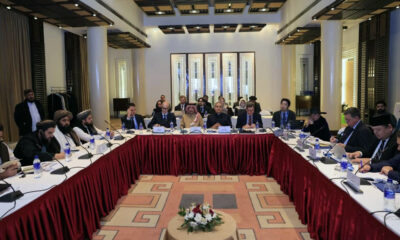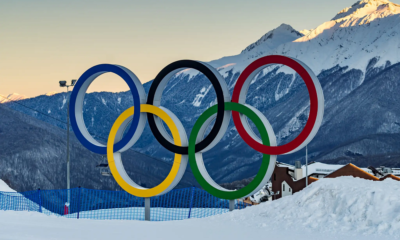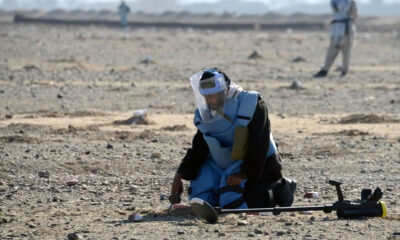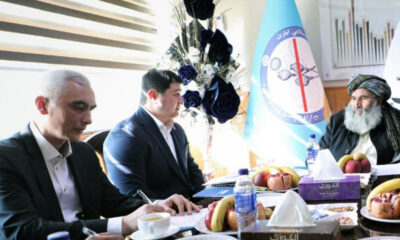Latest News
Putin warns West of harsh response if it crosses Russia’s ‘red lines’
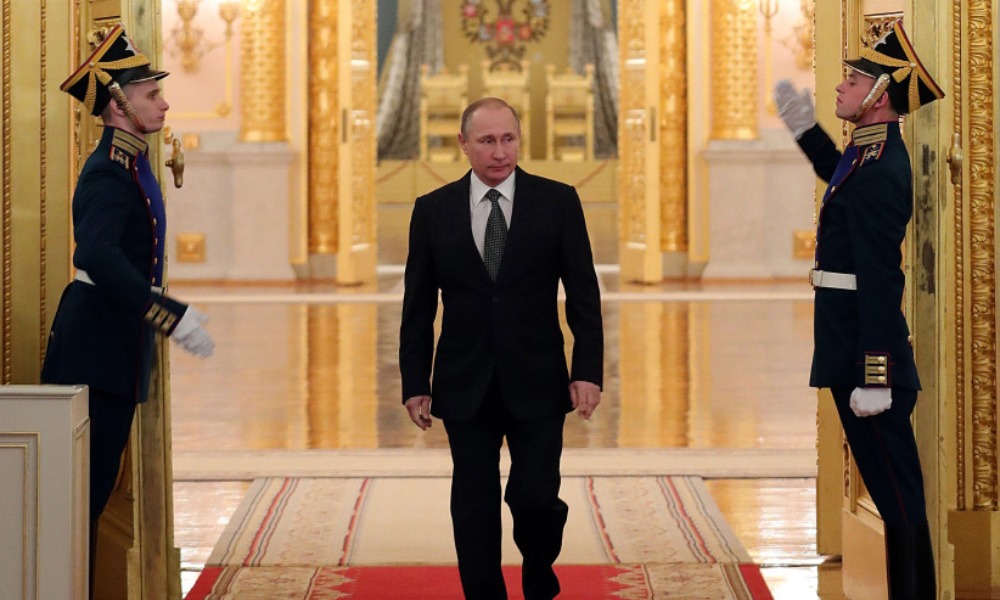
Russian President Vladimir Putin warned the West on Wednesday not to cross Russia’s “red lines”, saying Moscow would respond swiftly and harshly to any provocations and those responsible would regret it.
At a time of acute crisis in ties with the United States and Europe, with Russian troops massed near Ukraine and opposition leader Alexei Navalny on hunger strike in jail, the Kremlin leader used his state of the nation speech to project a message of Russian strength and defiance in the face of outside threats.
“We want good relations…and really don’t want to burn bridges,” Putin told both houses of parliament.
“But if someone mistakes our good intentions for indifference or weakness and intends to burn down or even blow up these bridges, they should know that Russia’s response will be asymmetrical, swift and harsh.”
Russia would determine where its red line lay in each specific case, he said, comparing those who attack it to hyenas led by a tiger.
His comments came at the climax of a speech dominated by Russia’s response to the COVID-19 pandemic and resulting economic hardship. Putin announced new social support measures for families with children ahead of a September parliamentary election.
He adopted a sterner tone when setting out foreign policy.
“In some countries, they have developed a highly unseemly habit of picking on Russia for any reason, and most often for no reason at all – a kind of sport,” said Putin, standing alone on a vast stage flanked by white, blue and red national flags and a backdrop of a giant double-headed eagle.
“Organisers of any provocations that threaten our core security interests will regret what they have done like they’ve never regretted anything for a long time.”
Putin, who is 68 and has dominated Russia for two decades, made no mention of Navalny. The opposition politician is ill in prison after starving himself for three weeks to demand access to his own doctors.
The rouble firmed after Putin’s speech, with markets interpreting it as not escalating tensions with the West.
Recent weeks have seen an intensification of confrontation between Russia and Western countries, which are alarmed by Navalny’s worsening condition and by what they say is the massing of tens of thousands of Russian troops near Ukraine and in Russian-annexed Crimea.
Washington last week tightened sanctions on Russia over accusations of computer hacking and election interference, and the Czech Republic accused Moscow of a role in explosions at an arms depot in 2014. Both expelled Russian diplomats. Russia denied wrongdoing and responded with tit-for-tat expulsions.
Moscow summoned a senior U.S. diplomat on Wednesday and said 10 embassy staff it expelled last week had a month to leave and that it would be disclosing the details of other punitive measures it had promised soon.
Tensions are also strained over the fate of Navalny, whose supporters rallied across Russia on Wednesday in his support.
Two of Navalny’s closest allies were arrested on Wednesday, their lawyers said. Lyubov Sobol, one of the faces of Navalny’s popular YouTube channel, and Kira Yarmysh, his spokeswoman, were both detained in Moscow.
One Navalny aide, Ruslan Shaveddinov, tweeted: “Right now across the whole of Russia they are detaining potential protesters. This is repression. This cannot be accepted. We need to fight this darkness.”
European Council President Charles Michel called the arrests “deplorable” and urged Russian authorities to respect people’s right to assemble.
OVD-Info, a group that monitors protests and detentions, said that nearly 300 people had been detained over the rallies in dozens of different places. The figure was expected to climb.
The Russian government has said the gatherings are illegal. Previous pro-Navalny rallies have been dispersed by force, with thousands of arrests.
Four doctors from outside Russia’s federal prison service visited Navalny on Tuesday and found his health to be satisfactory, Russian human rights commissioner Tatyana Moskalkova said.
In his speech, Putin urged all citizens to get vaccinated and predicted that Russia would achieve collective immunity by the autumn.
On the eve of an online climate summit to be hosted by U.S. President Joe Biden, Putin also called for tougher “polluter pays” rules and set a goal for Russia to cut its greenhouse gas emissions below those of the European Union in the next 30 years.
Latest News
Afghanistan hosts 4th Doha Process Counter-Narcotics Meeting, highlights progress
UNAMA, UN agencies, international organizations and diplomats praised the Islamic Emirate’s efforts, describing the sharp reduction in opium cultivation as a historic achievement.
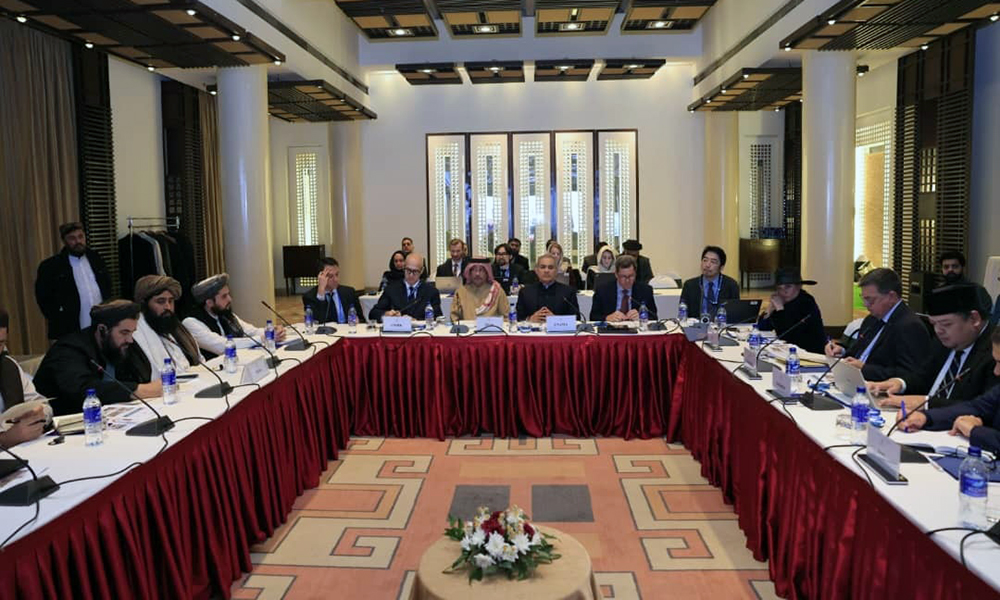
Afghanistan on Tuesday hosted the fourth meeting of the Counter-Narcotics Working Group under the Doha Process, with participants highlighting significant progress and the need for continued regional and international cooperation.
Hafiz Zia Ahmad Takal, head of public relations at the Ministry of Foreign Affairs, said the meeting was held at the Kabul Grand Hotel and hosted by UNAMA, with participation both in person and online.
The session brought together representatives from the Islamic Emirate of Afghanistan’s ministries of Foreign Affairs, Interior, Agriculture, Irrigation and Livestock, and Public Health, alongside UN agencies, international and regional organizations, the European Union, the Organization of Islamic Cooperation, diplomats and experts.
Takal said Afghan officials reported that opium cultivation has been reduced to near zero following a decree by the Supreme Leader. Representatives outlined achievements, challenges and proposals related to law enforcement, alternative livelihoods for farmers, and treatment programs for drug users.
Officials stressed that while the counter-narcotics measures primarily benefit Afghanistan, their impact extends beyond its borders, making sustained progress dependent on shared responsibility, coordinated investment and mutual trust.
Concerns were also raised over the growing threat of synthetic drugs, with Afghan officials noting that their sources lie outside the country and could pose serious risks to Afghanistan, the region and the wider world.
UNAMA, UN agencies, international organizations and diplomats praised the Islamic Emirate’s efforts, describing the sharp reduction in opium cultivation as a historic achievement.
Participants pledged continued support and called for closer coordination through the Doha Process and bilateral initiatives, with a particular emphasis on alternative livelihoods and expanded treatment for drug users.
Latest News
Afghanistan records over 80 deaths, 330 injuries from explosive ordnance in a year
Mohammad Yousuf Hamad, head of information and public relations at the NDPA, said children made up the majority of victims, accounting for 67.5 percent of total casualties.
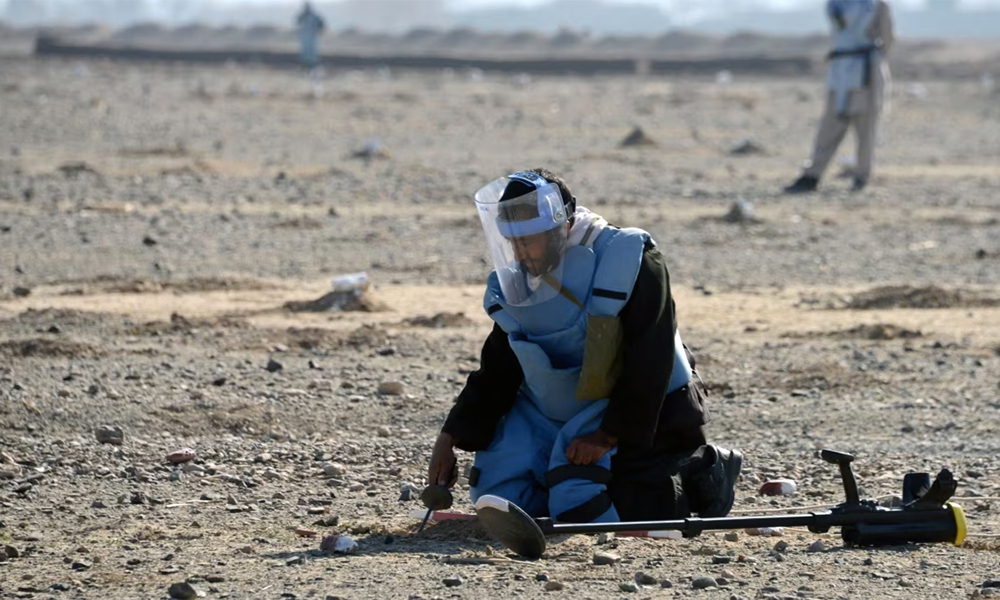
Afghanistan recorded 193 explosive ordnance incidents over the past year, resulting in 87 deaths and 333 injuries, according to the National Disaster Preparedness Authority (NDPA).
Mohammad Yousuf Hamad, head of information and public relations at the NDPA, said children made up the majority of victims, accounting for 67.5 percent of total casualties.
He noted that mine clearance teams cleared 58 kilometres of contaminated land and neutralised 24,720 mines during the same period.
Hamad added that 155 mine clearance teams are currently operating nationwide, while more than two million people have been reached through explosive hazard awareness programmes.
Despite these efforts, an estimated 106,000 kilometres of land across Afghanistan remain contaminated.
The update follows a warning from the UN Assistance Mission in Afghanistan (UNAMA), which said Afghanistan ranks third globally for casualties caused by explosive ordnance.
UNAMA reported that children account for around 80 percent of victims, many injured or killed while playing near unexploded devices.
UNAMA has called for increased funding for non-governmental organisations involved in mine clearance, stressing that sustained support is critical to protecting vulnerable communities and saving lives.
give me english hashtags with comma in between the words
Latest News
Uzbekistan, Pakistan advance Trans-Afghan railway project
The two sides also agreed to adopt a new format for regular commission meetings to improve coordination and accelerate joint projects.

Uzbekistan and Pakistan have agreed to begin fieldwork on the long-planned Trans-Afghan railway project, a key regional connectivity initiative aimed at linking Central and South Asia, according to Uzbekistan’s Ministry of Investment, Industry and Trade.
The agreement was reached during the 10th session of the Pakistan–Uzbekistan Intergovernmental Commission on Trade, Economic and Scientific-Technical Cooperation, co-chaired by Pakistan’s Special Assistant to the Prime Minister for Industries and Production, Haroon Akhtar Khan, and Uzbekistan’s Minister of Investment, Industry and Trade, Laziz Kudratov.
The two sides also agreed to adopt a new format for regular commission meetings to improve coordination and accelerate joint projects.
The railway is seen as a strategic project for landlocked Central Asian states seeking access to global markets, while also offering Pakistan expanded trade routes into Central Asia.
Afghanistan’s role as a transit country places it at the centre of the initiative, with the project expected to generate transit revenue, jobs and infrastructure development.
Uzbekistan, Pakistan and Afghanistan signed a framework agreement on July 17, 2025, to prepare a feasibility study for the railway. The planned 647-kilometre line will follow the Termez–Naibabad–Maidanshahr–Logar–Kharlachi route, linking Uzbekistan to Pakistan’s rail network and providing access to Karachi and other seaports.
The project’s preliminary cost is estimated at $4.6 billion, and its implementation will depend on financing, security conditions and sustained regional cooperation.
give me english hashtags with coma in between the words
-
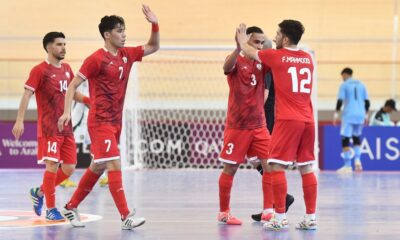
 Sport4 days ago
Sport4 days agoAFC Futsal Asian Cup: Afghanistan to face Iran in crucial Group D clash
-

 Sport4 days ago
Sport4 days agoT20 World Cup 2026: Afghanistan national cricket team arrives in India
-

 Sport3 days ago
Sport3 days agoAFC Futsal Asian Cup 2026: Final eight confirmed
-
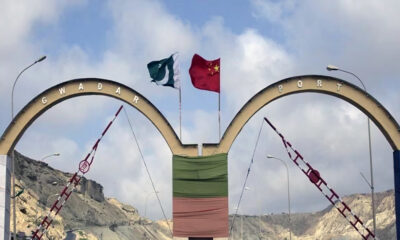
 Business5 days ago
Business5 days agoPakistan, China plan to extend CPEC to Afghanistan, revive trilateral framework
-

 Latest News4 days ago
Latest News4 days agoAfghanistan granted 30,000 Hajj quota for 2026
-

 Sport3 days ago
Sport3 days agoAfghanistan in new kit for T20 World Cup warm-up against Scotland
-

 Sport3 days ago
Sport3 days agoIran see off spirited Afghanistan to finish top of Group D
-
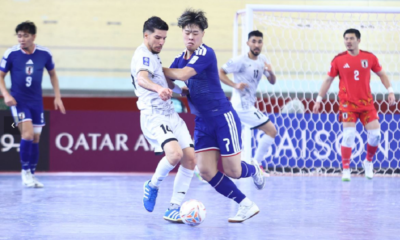
 Sport1 day ago
Sport1 day agoJapan trumps Afghanistan 6-0 in AFC Futsal Asian Cup quarter-final




